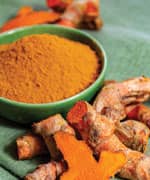Life Extension Magazine®
Vitamin C Helps Type II Diabetes Patients with Glycemic and Blood Pressure Control
Supplementation with ascorbic acid (vitamin C) was shown to improve glycemic control and reduce blood pressure in patients with type II diabetes, according to an article in the journal Diabetes, Obesity and Metabolism.*
Researchers conducted a small, randomized, double-blind, placebo-controlled, cross-over study that included 31 patients with type II diabetes, 27 of whom completed the study.
For four months, participants were given capsules containing 500 mg of ascorbic acid twice daily, or a placebo. They all wore continuous glucose monitors for 48 hours and ate standardized meals.
Compared to the individuals who received a placebo, the patients who took the vitamin C supplements showed a significant reduction in glucose levels after meals, and in time spent daily in hyperglycemia.
Researchers also reported that the patients supplemented with vitamin C experienced decreases of 7 mmHg in systolic blood pressure and 5 mmHg in diastolic blood pressure, while those who took a placebo did not.
Editor’s Note: The authors concluded that, “These findings offer evidence for the proposed use of ascorbic acid as an adjunct therapy to improve glycemic and blood pressure control in individuals with type II diabetes.”
*Diabetes Obes Metab. 2019 Mar; 21(3):674-682.
Greater Vitamin A and Carotenoid Intake Linked with Lower Risk of Skin Cancer

|
An article in JAMA Dermatology reported an association between increased intake of vitamin A and carotenoids, and a lower risk of cutaneous squamous cell carcinoma, a type of skin cancer.*
The study included 75,170 women who participated in the Nurses’ Health Study from 1984 to 2012 and 48,400 men enrolled in the Health Professionals Follow-Up Study from 1986 to 2012.
Dietary questionnaires completed upon enrollment and approximately every four years during the studies provided information concerning intake of retinol (vitamin A) and carotenoids from food and supplements, from which average intake was calculated.
Among men and women who were the study’s top 20% consumers of total vitamin A (the sum of retinol and carotenoids according to their vitamin A activity), the risk of acquiring squamous cell carcinoma was 17% lower in comparison with those whose intake was among the lowest 20%.
Editor’s Note: When the nutrients were examined separately, the top 20% consumers of retinol (vitamin A that did not include carotenoid sources), beta-cryptoxanthin, lycopene, and lutein plus zeaxanthin had risks of developing SCC that were 12%, 14%, 13%, and 11% less, respectively, than the odds experienced by people in the lowest group.
*JAMA Dermatol. 2019 Jul 31.
Benefits of CoQ10 for Insulin Sensitivity
 |
Results from a clinical trial reported in the Journal of Research in Medical Sciences revealed improvements in total antioxidant capacity, insulin sensitivity and blood glucose in women with type II diabetes who were given coenzyme Q10 (CoQ10).*
Thirty-four women with diabetes received 100 mg of CoQ10 and an equal number of diabetic women received a placebo daily for 12 weeks.
At the end of the trial, blood pressure was lower among participants who received CoQ10 in comparison with measurements obtained at the beginning of the intervention. Fasting blood glucose decreased in the CoQ10-supplemented group, and there was an increase of serum CoQ10, antioxidant capacity, catalase activity, and insulin sensitivity.
Editor’s Note: The researchers stated that, “Coenzyme Q10 is an important micronutrient that plays a central role in the mitochondrial electron transport chain and protects the body from damage by reactive oxygen species (ROS).”
*J Res Med Sci. 2018 Oct 26; 23:91.
Curcumin Aids Exercise Tolerance After Heart Failure, Animal Study Shows
 |
The outcome of an animal study suggests that curcumin could help heart failure patients who experience exercise intolerance, an article in the Journal of Applied Physiology reported.*
Using a mouse model of heart failure with reduced ejection fraction (which happens when the heart’s left ventricle muscle does not pump an adequate amount of blood) the researchers gave curcumin to one group of mice daily for 12 weeks, while another group received none.
Additional groups of healthy mice received the same regimens. Exercise capacity, muscle function and enzyme expression in muscle fiber samples were examined before and after treatment.
“We hypothesized that reduced expression of nuclear factor E2-related factor 2 (Nrf2) in skeletal muscle contributes to impaired exercise performance,” the authors stated. “We further hypothesized that curcumin, a Nrf2 activator, would preserve or increase exercise capacity in heart failure.”
Curcumin-treated mice with heart failure experienced improvement in exercise capacity, muscle function, Nrf2 activation, and levels of the antioxidant enzymes heme oxygenase-1 (HO-1) and superoxide dismutase (SOD)2. Curcumin also upregulated Nrf2, HO-1, and SOD2 expression in mice that did not have heart failure, which suggests that curcumin enhances antioxidant defenses in healthy muscle.
Editor’s Note: The authors concluded that, “In the present study, we demonstrated that eight weeks of curcumin treatment improved exercise performance, increased whole-body pulling tension, and ameliorated the skeletal myopathy in mice with heart failure with reduced ejection fraction, suggesting a potential application of curcumin in skeletal muscle dysfunction associated with heart failure.”
*J Appl Physiol. 2019; Feb 1;126(2):477-486.

